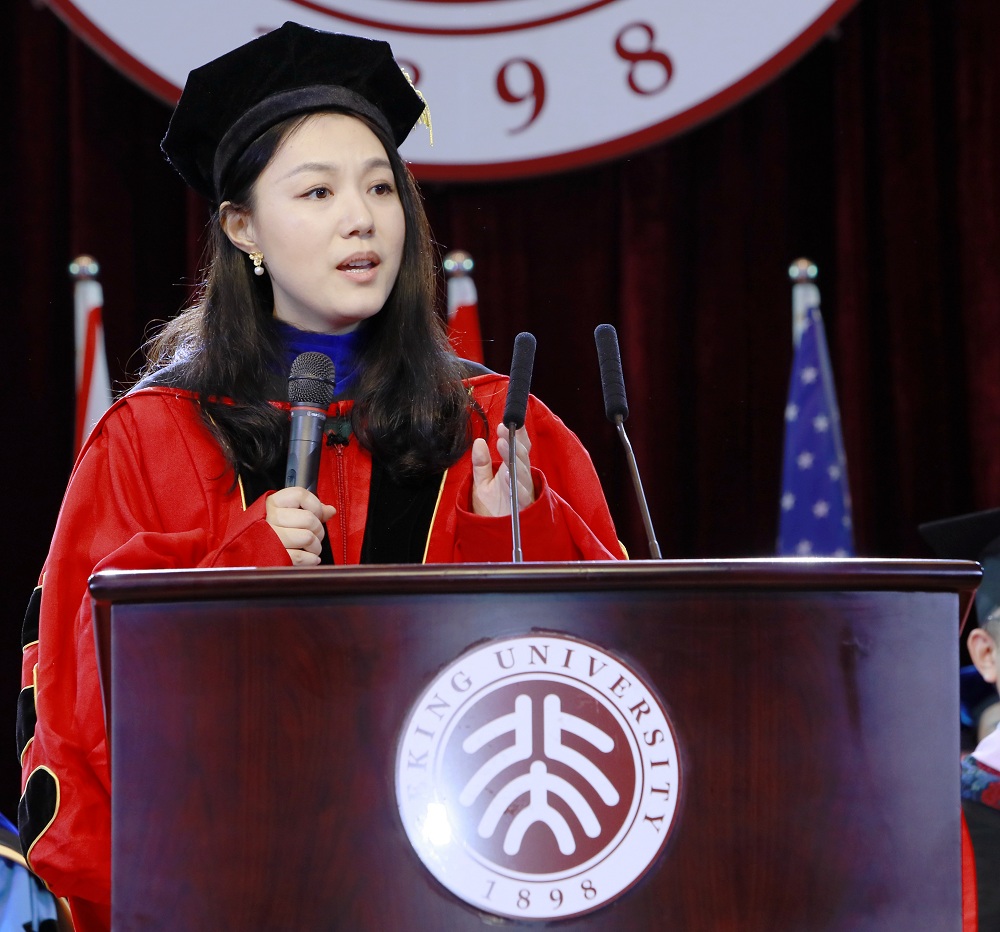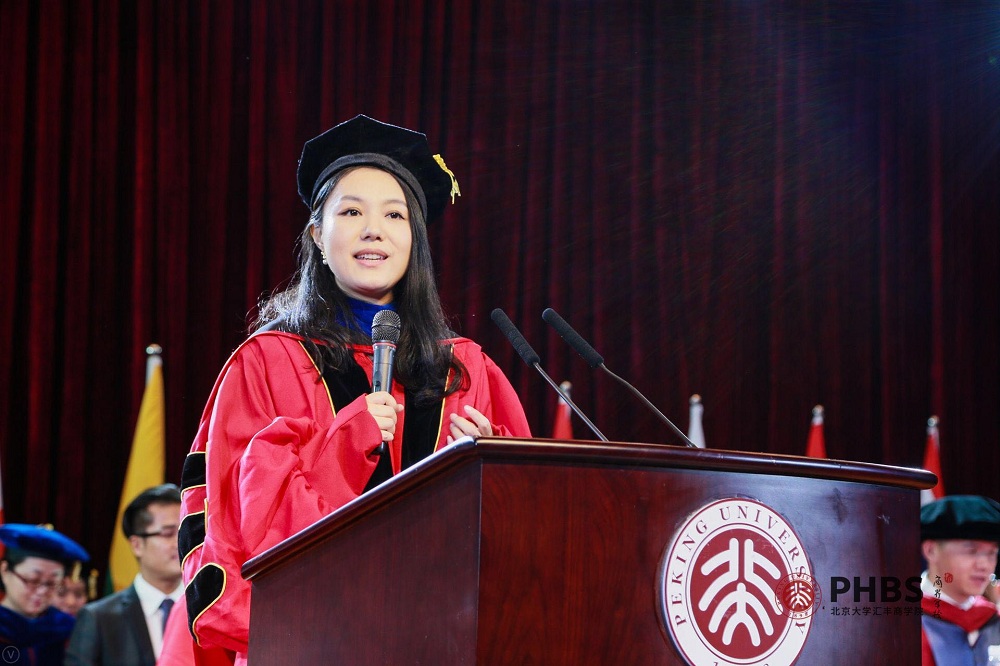Jiao Shi, assistant professor of PHBS, Ph.D. in Economics, University of Wisconsin
The following is the speech delivered by Professor Jiao Shi on PHBS 2018 commencement ceremony:

Steve Jobs, founder of the Apple Company and an idol of our time, once said at Stanford commencement, that you should never “settle” for anything less than work you loved. Now that many of you have found a job, I have a simple question: Do you know what kind of jobs fit your true, natural passion?
Job’s remark represents a strong belief of our age. We call it “Passion Theory”, according to which young people should only commit to jobs of their true passion, their natural calling. Why? Passion leads to full engagement, which facilitates success. Even if chance forbids you to succeed, you are at least happy. Isn’t the Passion Theory wonderful?
Unfortunately though, the Passion Theory builds on a premise: that you have an endowed, pre-existing passion, and you need to know what it is. Thus if you don’t even know your passion, you’d better pause your life and find your passion first. I searched for “find passion” on Google and it returned 720 million results. Clearly, the anxiety of finding passion is widespread and prevalent. Surveys conducted in North America and UK reveal that less than 4% college students claim to have a career-related passion.

Of course, in PHBS admission interviews, you all seem to have a passion in Economics and Finance. Many said that you were fascinated by A Random Walk Down Wall Street from childhood. Although in my in-class survey after admission, your passions revert to traveling, basketball, and movies.
I know. Interviews are distortionary.
On the other hand, we observe that successful people often do have tremendous passion in their jobs. How do we explain that? Correlation does not mean causation. Does passion lead to success, or does success leads to passion? We have an obvious reverse causality problem.
Carl Newport, PhD of Computer Science from MIT, has done some fabulous research in order to answer the question. His answer is: there is a third factor that causes both success and passion. What is it? It is mastery of your professional skills. When you become so good at something, it grants you confidence and accomplishment, and leads to success and passion. And mastery is a consequence of focused efforts and relentless deliberate practice.
I hope the realization is a relief. The Passion Theory states that our natural interest is pre-determined. All we can do is to accept and discover it. But if Passion is learned, then we are free. We have no passion to count on or blame on. We are 100% responsible for our lives. We need to work hard day to day to arrive at our dreams. This may sound less romantic, but remember: the abilities to focus and work hard can be learned. Your destiny is therefore in your control.
Your destiny is in your control. That is the ultimate freedom.
Finally, thank you for growing up together with PHBS in the past 2 years, during the best time of your youth. I hope you will continue work hard, and grow your skills and integrity. And I wish for friendship, love, success and happiness in your life! Thank you!
















